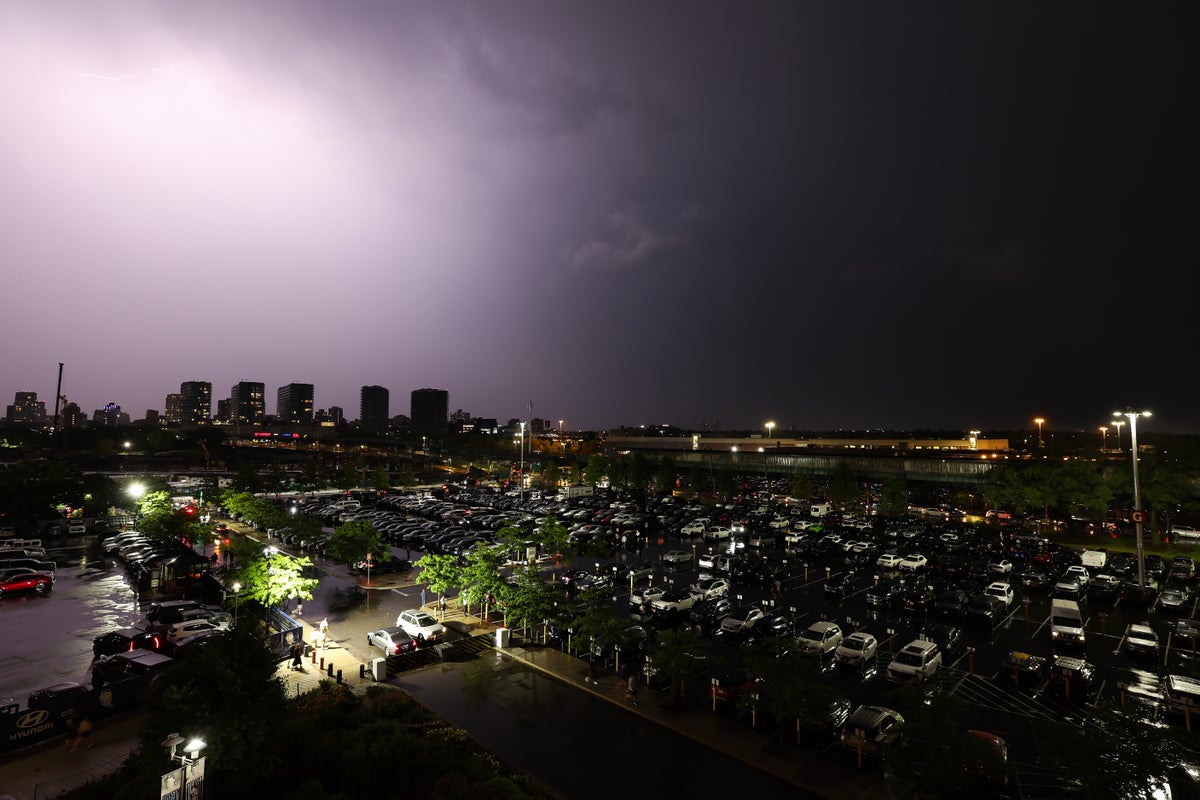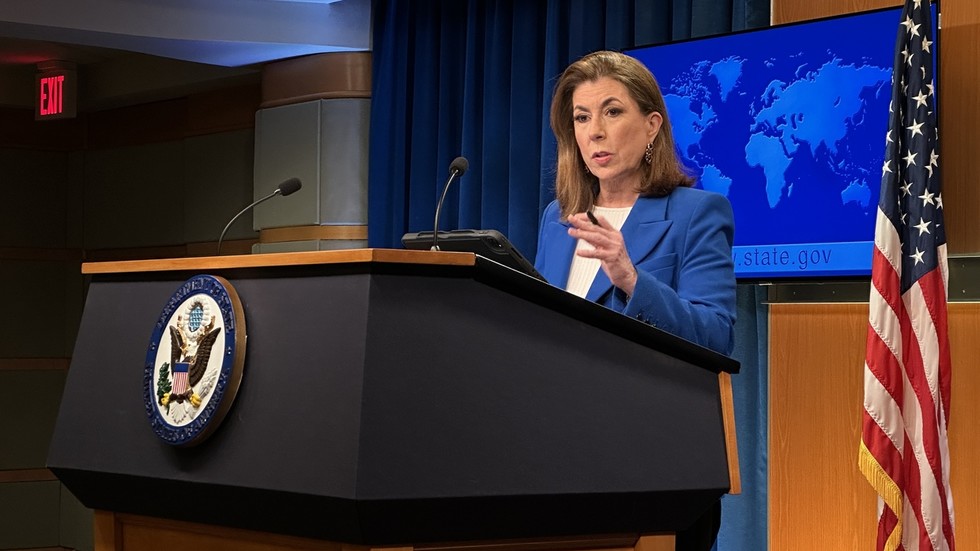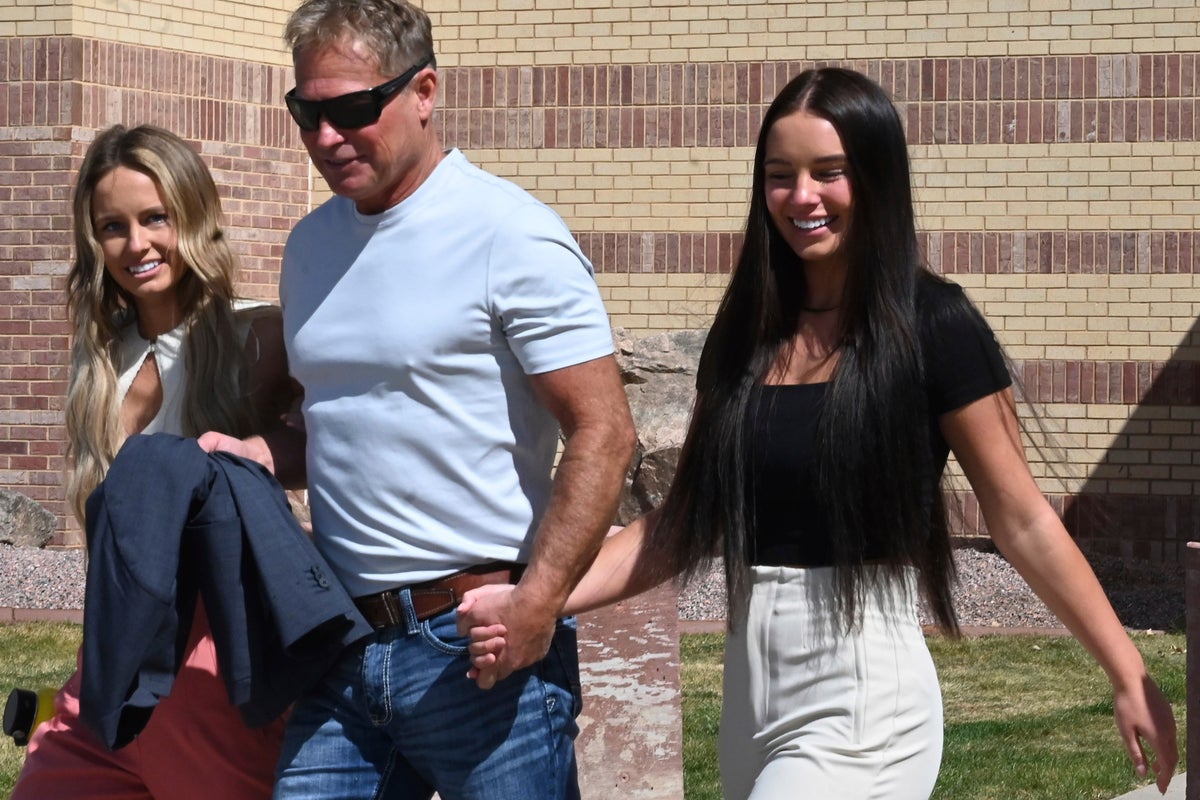ADVERTISEMENT
A meeting between top European diplomats and Iran’s foreign minister, Abbas Araghchi, on Friday yielded hopes of further talks but no indication of any immediate or concrete breakthrough, a week after Israel attacked Iran over Tehran's nuclear program, erupting into war between both sides.
Foreign ministers from Britain, France, and Germany and the European Union's foreign policy chief, Kaja Kallas, emerged from the talks at a Geneva hotel nearly four hours after Iran's Araghchi arrived for the meeting.
It was the first face-to-face meeting between Western and Iranian officials since the start of the conflict.
In a joint written statement issued after the talks ended, the three European nations and the EU said that they “discussed avenues towards a negotiated solution to Iran’s nuclear programme.”
They reiterated their concerns about the “expansion” of the nuclear program, adding that it has “no credible civilian purpose.”
EU foreign policy chief Kaja Kallas said, ”We agreed that we will discuss nuclear but also broader issues that we have and keep the discussions open."
“The good result today is that we leave the room with the impression that the Iranian side is fundamentally ready to continue talking about all important issues,” German Foreign Minister Johann Wadephul said, adding both sides had held “very serious talks.”
While France's Foreign Minister Jean-Noël Barrot told reporters, military operations can slow Iran’s nuclear program, but in no way can they eliminate it.
“We know well—after having seen what happened in Afghanistan, in Iraq, and in Libya—how illusory and dangerous it is to want to impose regime change from outside.”
Barrot also said that European nations ”invited the Iranian minister to envisage negotiations with all parties, including the United States, and without waiting for the end of the strikes."
However promising, Iran ruled out new nuclear talks until attacks from Israel stop.
According to Araghchi, Iran was ready to consider diplomacy only if Israel's "aggression is stopped." "I make it crystal clear that Iran's defence capabilities are non-negotiable," the Iranian foreign minister stressed after the Geneva talks.
He expressed support for “a continuation of discussions with the E3 and the EU and expressed his readiness to meet again in the near future.” He also denounced Israel’s attacks against nuclear facilities in Iran and expressed “grave concern” about what he called “non-condemnation” by European nations.
For his part, British Foreign Secretary David Lammy urged Tehran to continue its talks with the United States. Lammy said, “We are keen to continue ongoing discussions and negotiations with Iran, and we urge Iran to continue their talks with the United States.” He added that “we were clear: Iran cannot have a nuclear weapon.”
He added there is “a window of within two weeks where we can see a diplomatic solution” and urged Iran “to take that off-ramp.”
Trump delays decision
Meanwhile, it remains unclear how that will happen as US President Donald Trump continues to weigh whether to attack Iran by striking its well-defended Fordo uranium enrichment facility, which is buried under a mountain and widely considered to be out of reach of all but America’s “bunker-buster” bombs.
Trump said on Wednesday that he’ll decide within two weeks whether the US military will get directly involved in the war, given the “substantial chance” for renewed negotiations over Tehran’s nuclear program.
Israel says it launched its airstrike campaign to stop Iran from getting closer to being able to build a nuclear weapon.
Iran and the United States had been negotiating over the possibility of a new diplomatic deal over Tehran’s programme, though Trump has said Israel’s campaign came after a 60-day window he set for the talks.
'We are entitled … to defend our territorial integrity' - Iran
In light of the possibility of US involvement, Iran’s supreme leader rejected Trump's calls for surrender Wednesday and warned that any military involvement by the Americans would cause “irreparable damage to them.”
Just before meeting the European diplomats on Friday, Foreign Minister Araghchi made a brief appearance before the U.N. Human Rights Council in Geneva, telling the council that Israel’s “attacks on nuclear facilities are grave war crimes”.
Araghchi insisted that Iran is "entitled … and determined to defend our territorial integrity, national sovereignty, and security with all force.”
Tehran has long insisted its nuclear programme is peaceful, though it was the only non-nuclear-armed state to enrich uranium up to 60%, a short, technical step away from weapons-grade levels of 90%.
The initial 2015 nuclear agreement between Iran and the world powers was negotiated in large part by the three European nations.
However, Iran has been found wanting in its cooperation with the International Atomic Energy Agency, the U.N. nuclear watchdog, leading to warnings by the EU states to reimpose sanctions that were suspended under the agreement.

 3 hours ago
3
3 hours ago
3









